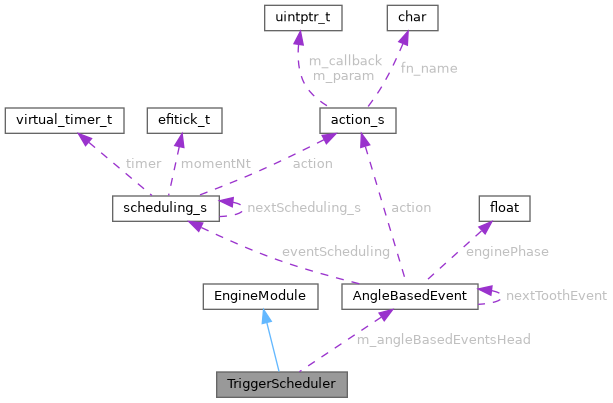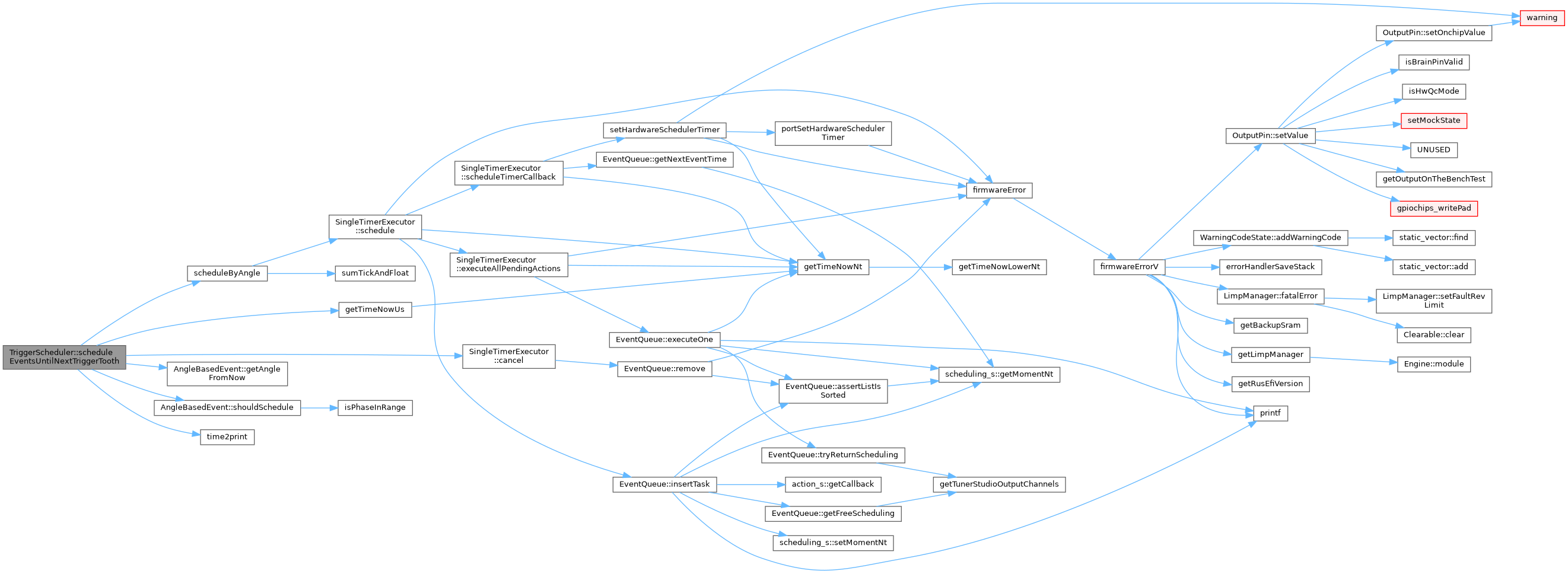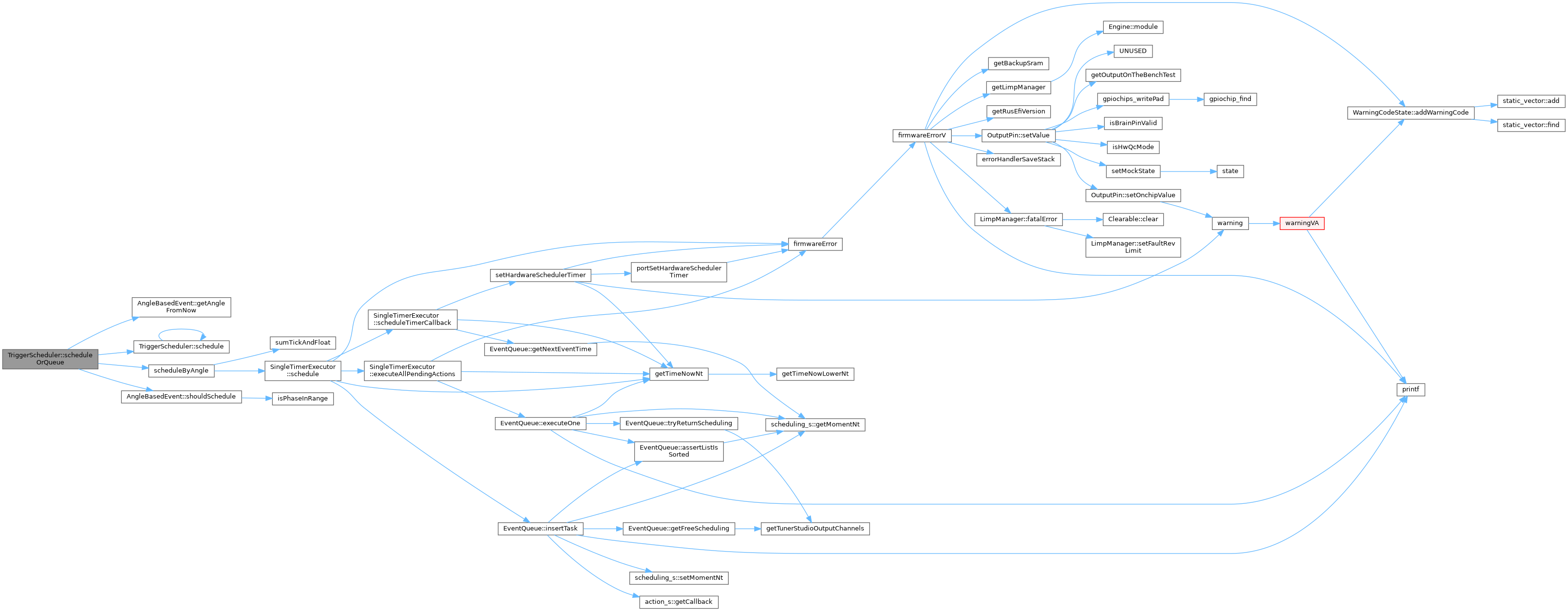#include <trigger_scheduler.h>


Public Member Functions | |
| void | schedule (const char *msg, AngleBasedEvent *event, angle_t angle, action_s const &action) |
| bool | scheduleOrQueue (const char *msg, AngleBasedEvent *event, efitick_t edgeTimestamp, angle_t angle, action_s action, float currentPhase, float nextPhase) |
| void | cancel (AngleBasedEvent *event) |
| void | scheduleEventsUntilNextTriggerTooth (float rpm, efitick_t edgeTimestamp, float currentPhase, float nextPhase) |
| AngleBasedEvent * | getElementAtIndexForUnitTest (int index) |
 Public Member Functions inherited from EngineModule Public Member Functions inherited from EngineModule | |
| virtual void | initNoConfiguration () |
| virtual void | setDefaultConfiguration () |
| virtual void | onConfigurationChange (engine_configuration_s const *) |
| virtual void | onSlowCallback () |
| virtual void | onFastCallback () |
| virtual void | onEngineStop () |
| virtual void | onIgnitionStateChanged (bool) |
| virtual bool | needsDelayedShutoff () |
| virtual void | onEnginePhase (float, efitick_t, angle_t, angle_t) |
Private Member Functions | |
| void | schedule (const char *msg, AngleBasedEvent *event, action_s const &action) |
| bool | assertNotInList (AngleBasedEvent *head, AngleBasedEvent *element) |
Private Attributes | |
| AngleBasedEvent * | m_angleBasedEventsHead = nullptr |
Detailed Description
Definition at line 5 of file trigger_scheduler.h.
Member Function Documentation
◆ assertNotInList()
|
private |
for example, this might happen in case of sudden RPM change if event was not scheduled by angle but was scheduled by time. In case of scheduling by time with slow RPM the whole next fast revolution might be within the wait
Definition at line 5 of file trigger_scheduler.cpp.
Referenced by schedule().


◆ cancel()
| void TriggerScheduler::cancel | ( | AngleBasedEvent * | event | ) |
Definition at line 90 of file trigger_scheduler.cpp.
◆ getElementAtIndexForUnitTest()
| AngleBasedEvent * TriggerScheduler::getElementAtIndexForUnitTest | ( | int | index | ) |
Definition at line 175 of file trigger_scheduler.cpp.
◆ schedule() [1/2]
|
private |
Definition at line 67 of file trigger_scheduler.cpp.

◆ schedule() [2/2]
| void TriggerScheduler::schedule | ( | const char * | msg, |
| AngleBasedEvent * | event, | ||
| angle_t | angle, | ||
| action_s const & | action | ||
| ) |
Definition at line 29 of file trigger_scheduler.cpp.
Referenced by schedule(), and scheduleOrQueue().


◆ scheduleEventsUntilNextTriggerTooth()
| void TriggerScheduler::scheduleEventsUntilNextTriggerTooth | ( | float | rpm, |
| efitick_t | edgeTimestamp, | ||
| float | currentPhase, | ||
| float | nextPhase | ||
| ) |
Definition at line 96 of file trigger_scheduler.cpp.

◆ scheduleOrQueue()
| bool TriggerScheduler::scheduleOrQueue | ( | const char * | msg, |
| AngleBasedEvent * | event, | ||
| efitick_t | edgeTimestamp, | ||
| angle_t | angle, | ||
| action_s | action, | ||
| float | currentPhase, | ||
| float | nextPhase | ||
| ) |
Schedules 'action' to occur at engine cycle angle 'angle'.
- Returns
- true if event corresponds to current tooth and was time-based scheduler false if event was put into queue for scheduling at a later tooth
Definition at line 41 of file trigger_scheduler.cpp.

Field Documentation
◆ m_angleBasedEventsHead
|
private |
That's the linked list of pending events scheduled in relation to trigger At the moment we iterate over the whole list while looking for events for specific trigger index We can make it an array of lists per trigger index, but that would take some RAM and probably not needed yet.
Definition at line 40 of file trigger_scheduler.h.
Referenced by cancel(), getElementAtIndexForUnitTest(), schedule(), and scheduleEventsUntilNextTriggerTooth().
The documentation for this class was generated from the following files:
- controllers/system/timer/trigger_scheduler.h
- controllers/system/timer/trigger_scheduler.cpp